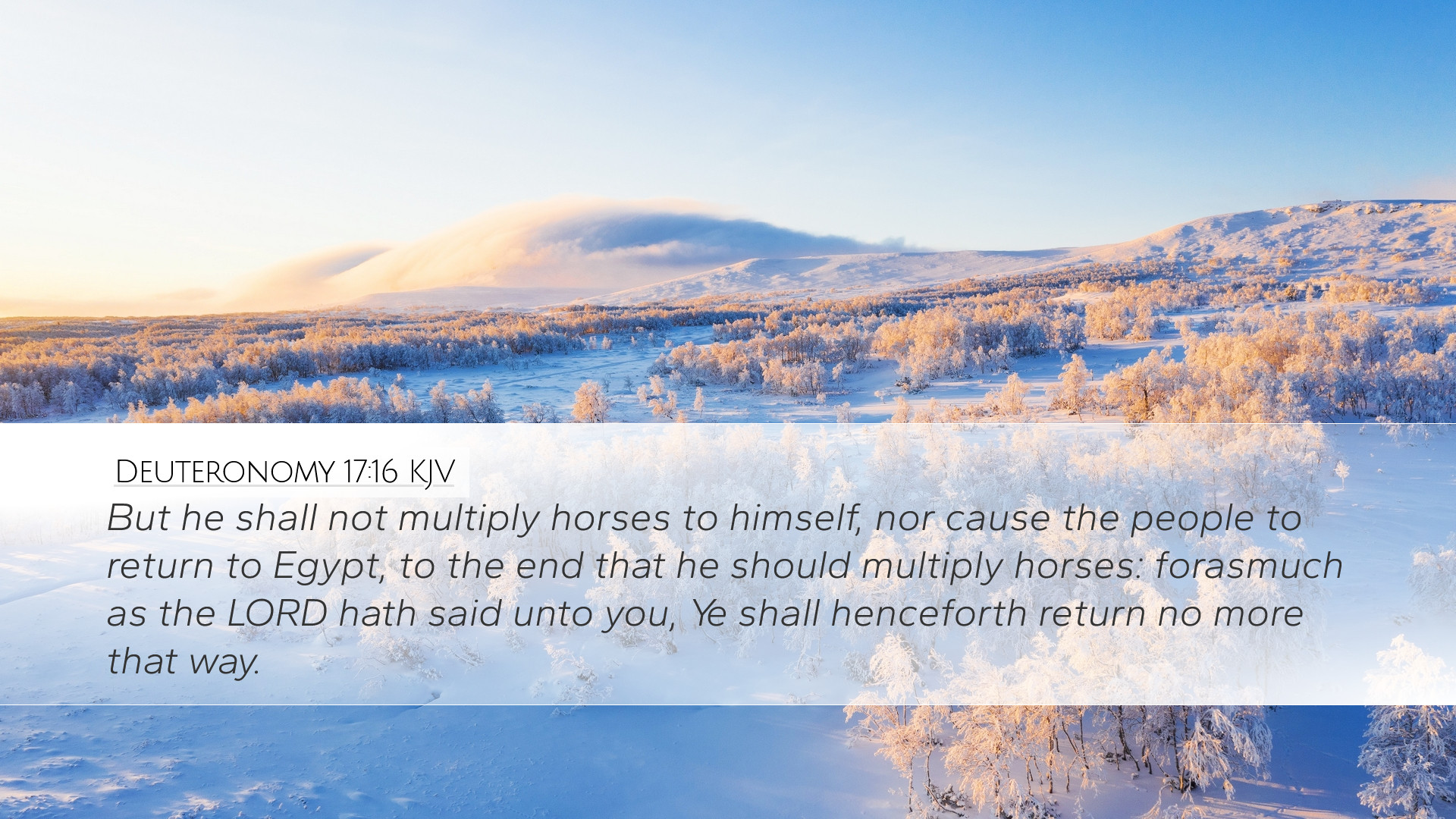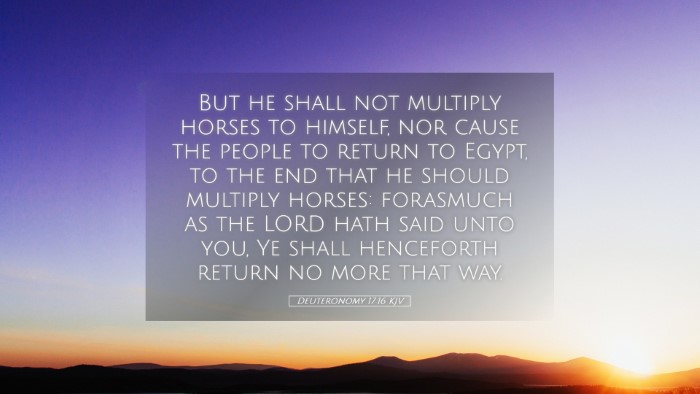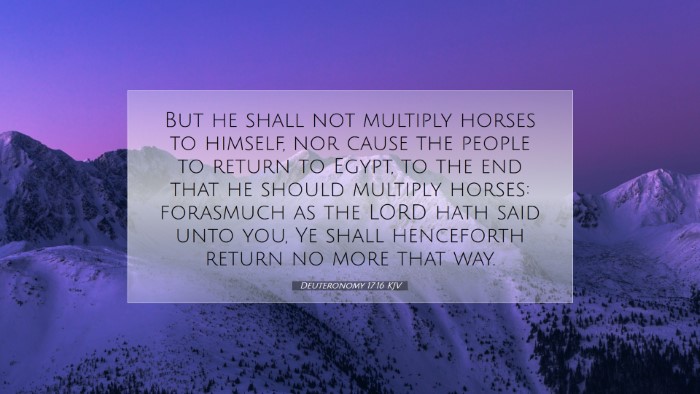Commentary on Deuteronomy 17:16
Bible Verse: "But he shall not multiply horses to himself, nor cause the people to return to Egypt, to the end that he should multiply horses: forasmuch as the LORD hath said unto you, Ye shall henceforth return no more that way." (Deuteronomy 17:16, KJV)
Introduction
This verse offers critical insights into the nature of kingship in Israel during the time of Moses. The verse addresses the prohibited actions for a king of Israel, emphasizing spiritual fidelity and national identity. It serves as a warning against the temptation to rely on military strength and past allegiances.
Contextual Background
Deuteronomy, as part of the Pentateuch, presents a re-statement of the Law given to the Israelites during their wilderness wanderings. It emphasizes the importance of remaining faithful to Yahweh. In this section, Moses is laying down the laws governing the future kings of Israel, anticipating a time when the people would demand a king like other nations.
Key Themes
- The Restriction Against Multiplying Horses
This directive refers to the practice of increasing military might through the accumulation of horses. Horses were significant as they symbolized power and security in the ancient Near East. In his commentary, Matthew Henry notes that the king's reliance on armor and horses could lead to pride and a departure from reliance on God.
- Avoiding Egypt
Returning to Egypt signifies a regression both physically and spiritually. The Israelites had been delivered from slavery and oppression, and any return would symbolize a rejection of their covenant with God. Albert Barnes emphasizes that Egypt represents the world’s bondage and that reliance on earthly means can lead to disobedience to God's commandments.
- The Importance of Trust in God
The ultimate intention of this decree is that the king looks to God for guidance and protection rather than military alliances and horses. Adam Clarke comments that trusting in the Lord leads to a solid foundation for leadership, steering clear of corruption and pride that can come from self-reliance.
Exegetical Insights
The prohibition against multiplying horses reflects a broader principle concerning governance in Israel. Each directive serves as a reminder that the king's role is to represent divine authority, not merely political strategy. This passage implies that the true strength and security of Israel lie not in military might but in their covenant relationship with God.
Theological Implications
This text extends beyond the literal prohibition to encapsulate profound theological truths about human authority and divine sovereignty. The king is admonished to maintain a posture of humility and reliance on God. Clarke mentions how this principle applies universally, reminding all leaders of their dependence on the divine will.
Contemporary Application
-
Leadership and Responsibility:
Leaders today, in various spheres—be it political, ecclesiastical, or communal—are called to assess their sources of strength. The emphasis on relying on God rather than worldly systems is applicable in modern contexts, signalling a necessary introspection for spiritual leaders.
-
National Identity:
For nations that profess a belief in God, there is a challenge to reflect on their actions relative to their spiritual heritage. The call to avoid returning to ‘Egypt’ can be interpreted as a warning against reverting to cultural or ethical practices that contradict spiritual commitments.
-
The Nature of Trust:
The faithfulness of God stands in contrast to human insecurity and fear. In a world where trust in material strength is commonplace, this passage calls for a radical reorientation towards reliance on God’s provision and care.
Concluding Thoughts
Deuteronomy 17:16 is much more than a historical or legal text. It encapsulates fundamental truths about power, trust, and the essence of leadership. The invitation to trust God fully, reject reliance on worldly strength, and commit to a relationship with Him is timeless. Leaders, whether in ancient Israel or contemporary society, are continually reminded of the perils of misplaced trust and the blessing found in God's guidance.


